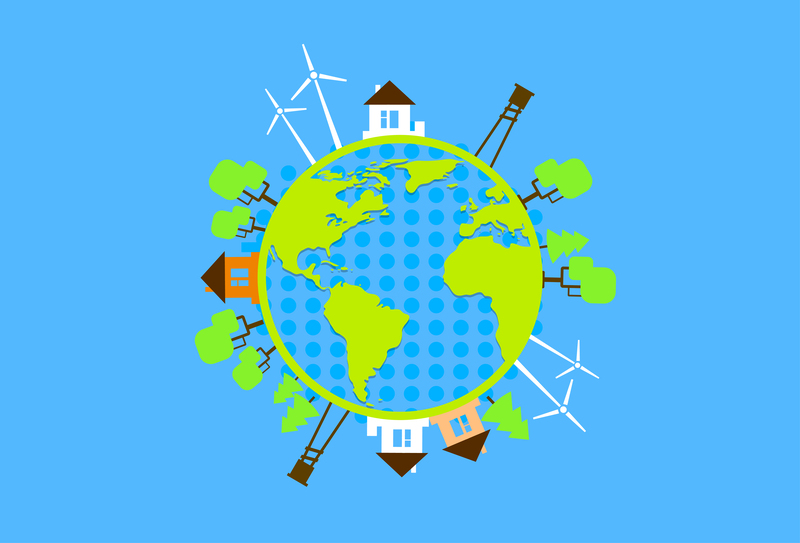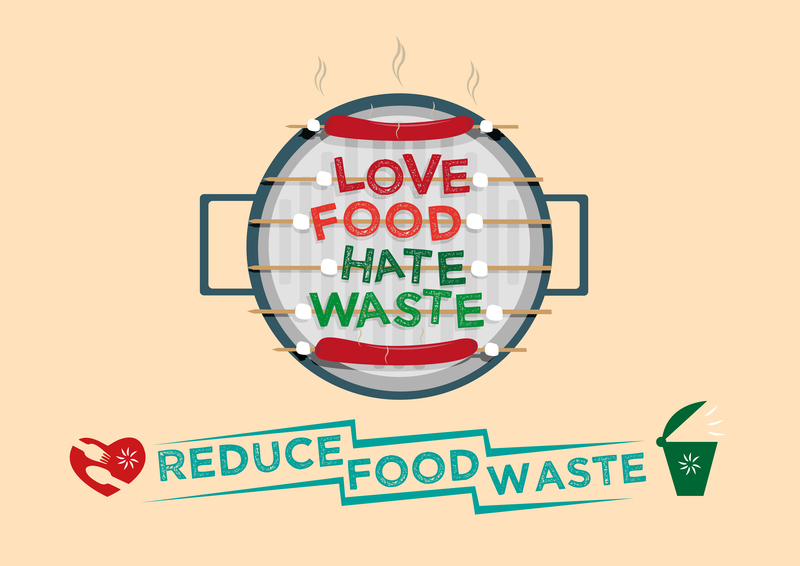Join the Effort to Responsibly Dispose of PPE Waste in Your Area
The global pandemic has not only redefined personal health and safety but has also led to an unprecedented surge in personal protective equipment (PPE) use. Face masks, disposable gloves, gowns, and face shields have become everyday essentials for millions. However, the sudden increase in PPE usage has created a new environmental challenge: PPE waste disposal. Sadly, much of this waste ends up littering our streets, parks, and waterways, posing risks to both wildlife and sanitation workers. It's time to take action in your community. Join the movement to responsibly dispose of PPE waste in your area and help foster a cleaner, healthier world for everyone.
Why Is PPE Waste Disposal So Crucial?
PPE was designed to shield us from harmful pathogens, but when carelessly discarded, it becomes a literal and figurative hazard. The proper management and disposal of PPE waste present significant environmental and public health challenges:
- Environmental Pollution: Many PPE items are made from plastics and other non-biodegradable materials. When improperly disposed of, these can persist in the environment for decades, eventually breaking down into microplastics that pollute soil, rivers, and oceans.
- Threat to Wildlife: Animals can mistake discarded PPE for food or become entangled in straps and elastic bands, resulting in injury or death.
- Health Risks: Used PPE can be contaminated with viruses, bacteria, and other pathogens. Improper handling based on lack of PPE waste management awareness puts sanitation workers and others at risk of disease transmission.
- Overflowing Landfills: The sheer volume of single-use PPE is flooding waste management systems, straining landfill capacities and complicating safe disposal.
Being proactive in the responsible disposal of PPE waste makes a tangible difference. Community-driven initiatives not only protect local environments but set a positive example for others to follow.

Understanding Different Types of PPE Waste
Before learning how to safely and responsibly dispose of PPE in your area, it's vital to understand the different types of PPE waste and why they require special handling.
- Face Masks: Most disposable masks are made from synthetic plastics like polypropylene, which can take centuries to break down. Both medical and non-medical masks can harbor infectious agents after use.
- Gloves: Latex, nitrile, and vinyl gloves are common in various settings. They, too, are non-biodegradable and risk spreading contamination through improper disposal.
- Face Shields and Goggles: Usually made of polycarbonate or similar plastics, these items are less commonly used but present a significant bulk waste issue in healthcare settings and for frontline workers.
- Protective Gowns and Suits: Widely used in hospitals, these textiles are often single-use, treated with chemicals, and classified as medical waste.
Select PPE items can be reused or recycled, but only when properly cleaned and processed. Most used PPE, especially from healthcare or quarantine environments, requires careful disposal to prevent contamination.
How to Responsibly Dispose of PPE Waste in Your Community
Joining efforts to improve PPE waste disposal in your area doesn't have to be complicated. Here are actionable steps for individuals, families, and organizations:
1. Educate Yourself and Others
- Understand the guidelines laid out by your local health department or waste management authority regarding the disposal of PPE waste.
- Share information with your neighbors, especially about the dangers of littering PPE and the benefits of safe disposal.
2. Use Proper PPE Disposal Bins
- Seek out designated PPE waste bins which may be color-coded or clearly labeled for masks, gloves, and related items.
- If your area lacks these, advocate or collaborate with local authorities or businesses to install them in key locations--workplaces, schools, grocery stores, and public gatherings.
3. Safe Handling of Used PPE
- Always remove PPE using clean hands and avoid touching the exterior surfaces.
- Do not attempt to wash or reuse single-use PPE items unless advised by a healthcare provider.
- Seal used masks and gloves in a plastic or paper bag before placing them in designated PPE trash bins to contain potential pathogens.
4. Community Clean-Up Initiatives
- Organize or join local PPE waste pick-up drives to clear parks, roadways, and beaches of discarded masks and gloves.
- Educate and equip volunteers with appropriate PPE themselves, as well as safe disposal kits or containers.
5. Support PPE Disposal Innovation and Recycling
- Some companies and non-profits are piloting PPE recycling programs. Research and support these initiatives in your area.
- If available, participate in mail-back or collection programs that safely process and recycle PPE materials into park benches, roadways, and new products.
The Environmental Impact of Improper PPE Waste Disposal
Improper PPE waste disposal has far-reaching consequences for our planet.
- Microplastics from degraded masks and gloves enter aquatic ecosystems, accumulating in fish and other wildlife.
- Burning PPE waste, a common practice in regions lacking proper facilities, releases toxic chemicals and greenhouse gases.
- Littered PPE clogs drains and waterways, worsening urban flooding and contributing to unsanitary conditions.
Taking responsibility for PPE waste is not just about "cleaning up" after ourselves. It's about interrupting a growing environmental crisis and safeguarding the spaces we rely on, both now and for future generations.
What Role Do Local Authorities Play in PPE Waste Management?
Effective PPE waste disposal strategies require collaborative effort between citizens and local authorities. Governments and municipalities have a duty to:
- Provide clear guidelines on PPE waste segregation and collection.
- Install ample, well-labeled PPE-specific bins in high-traffic areas.
- Train sanitation workers on safe PPE handling and provide necessary protective gear.
- Coordinate regular outreach and educational campaigns on responsible PPE waste disposal.
- Promote or partner in PPE recycling or energy recovery programs.
If your area lacks adequate PPE waste management infrastructure, don't hesitate to advocate for change. Community petitions, social media campaigns, and direct engagement with local representatives can spark tangible improvements and foster lasting, positive change.
Schools and Workplaces: Key Hubs for PPE Waste Responsibility
With millions of people returning to schools and office environments, these locations become critical for effective PPE waste management.
- Place clearly marked PPE disposal bins at entrances, classrooms, and breakrooms.
- Host brief educational sessions about the importance of responsible PPE disposal for students and staff.
- Assign a PPE waste monitor or coordinator to ensure bins are emptied regularly and safely.
- Encourage the use of reusable PPE where appropriate, following health authority guidelines.
Innovative Solutions: The Future of Sustainable PPE Disposal
Addressing the PPE waste crisis requires creative, scalable solutions. Some promising innovations include:
- PPE Recycling: Engineers have devised methods to melt down polypropylene masks and gloves for use in construction materials and textiles.
- Biodegradable Alternatives: Eco-friendly masks and gloves made from plant-based materials are becoming increasingly available, offering compostable and lower-impact options.
- Smart Disposal Bins: High-tech bins use UV light to sterilize contents, monitor fill levels, and alert sanitation teams for timely collection.
Supporting pilot programs, startups, or local scientists experimenting with such solutions strengthens the global shift to sustainable PPE waste management.
Tips for Reducing Your PPE Waste Footprint
- Only use single-use PPE when absolutely necessary.
- Opt for washable, reusable masks when possible, and follow proper sanitization routines.
- Avoid double-masking with disposables unless medically advised, as this generates more waste.
- Support businesses and institutions committed to responsible PPE supply chains and waste disposal.
How Can You Join the Responsible PPE Waste Disposal Movement?
Join the effort in your area to responsibly dispose of PPE waste by:
- Staying informed about proper disposal practices.
- Leading by example--always using and disposing of PPE thoughtfully and encouraging others to do the same.
- Advocating for better policies at the local level and participating in PPE waste collection or recycling events.
- Sharing knowledge via social media, community forums, or hands-on demonstrations.
- Partnering with local environmental groups, schools, or work colleagues to develop ongoing PPE waste solutions.

Frequently Asked Questions
Is it safe to recycle used face masks and gloves?
At present, most municipal recycling programs do not accept used PPE due to contamination risks and the materials they're made of. However, some specialized recycling programs do exist. Check with your local authorities or look for mail-in PPE recycling initiatives.
What should I do if I see PPE waste littering my neighborhood?
If you feel safe, pick up the litter while wearing gloves and using a grabber tool. Seal the waste in a secure bag and dispose of it in a PPE bin, following local guidance. Encourage local groups or councils to organize clean-ups.
Are cloth masks better for the environment?
Yes, reusable cloth masks--when properly washed and maintained--greatly reduce the volume of single-use PPE waste. However, they must be used only where and when appropriate, following guidance from health authorities.
How can businesses help reduce PPE waste?
By installing PPE specific bins, educating staff, sourcing sustainable PPE options, and engaging with local recycling or collection programs, businesses can play a pivotal role in responsible PPE waste disposal.
Conclusion: Make PPE Waste Responsibility a Community Standard
The pandemic has shown us the importance of community action and individual responsibility. Join the effort to responsibly dispose of PPE waste in your area to protect the environment, animals, and our own health. Whether at home, school, work, or on the go, always ensure your masks, gloves, and other protective gear are disposed of using recommended practices. Support and participate in local programs, stay educated, and encourage others to join you.
Together, we can turn the tide on PPE pollution, paving the way for not just cleaner communities, but a more resilient and sustainable world. The time to act is now--start making a difference in your area today!